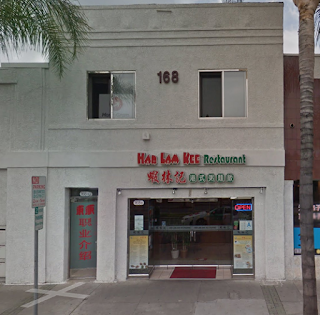Certainly an insurance company has much more resources than an injured worker, and more than the vast majority of the insured employer population as well.
But are there times when an insurance company, as an entity, is so deeply prejudiced that it is unfair, despite its resources, to make it pay on a claim?
My bet is that the vast majority of the general population would say "no"; the insurance industry has one of the worst public images, down there with lawyers and used car sales.
Injured workers would likely say there are absolutely no circumstances when an insurance company should be let off the hook on a claim. Policy-wielding employers would likely not be far behind in supporting that view.
But insurance is a business, bottom line. That means it has to make financial sense for an insurance company to do business. Whether or not a company in the business of selling and administering workers' compensation insurance makes money is the product of two basic components: investment income from the money it holds in trust for policy holders; and, relatedly, keeping expenses down (i.e. not paying claims it isn't required to).
There is a long succession of cases out of the United States Supreme Court evolving the rights of corporations. They have religious rights, freedom of speech rights, rights against double jeopardy, etc.
So, do common law notions of fairness and equity also apply to insurance company corporations under workers' compensation systems?
The California Second District Court of Appeals is pondering that question and like many cases where lines in the sand are sought, the facts are on the extreme end of the spectrum.
Truck Insurance wrote a policy for the Har Lam Kee Restaurant.
 |
| Image: Google Maps Street View |
For whatever reason, though, a workers' compensation claim for Kwok wasn't filed until seven and a half years after his accident.
The carrier denied the claim on a statute of limitations defense, a lack of evidence that Kwok's injury arose out of his employment.
A Workers' Compensation Judge determined that his claim had been timely because Kwok's employer had failed to perform its statutory duty to inform him of his right to file a claim.
Truck sought reconsideration by the WCAB, complaining that the judge had not addressed its laches defense; an equitable defense that bars an action when there has been an unreasonable delay in filing the action, and which results in prejudice to the defendant.
Truck's prejudice is: 1) that since Har Lam Kee was a family-owned and operated restaurant, Kwok's employer obviously knew about the injury; 2) Truck was unable to speak to witnesses, locate documents regarding the ownership of the restaurant and Kwok’s wages, or review the insurance policy issued to the restaurant to determine coverage due to the latency in reporting the claim; 3) Truck destroys records after seven years, so it couldn't check to see what coverage it had extended to Har Lam Kee's employees by the time Kwok's claim was filed, which is important because; 4) there was evidence Kwok was the owner of the restaurant and he would likely have been excluded from coverage under normal policy language.
The WCJ recommended that the board deny reconsideration, opining that the carrier's laches defense failed for the same reasons as its statute of limitations defense.
After the board denied reconsideration, Truck sought judicial review.
Kwok's attorneys respond that Truck’s admission at trial that Kwok was a restaurant employee, then it didn't matter that Truck was unable to determine who the actual owner of the restaurant had been. Kwok's attorneys further emphasize that Truck was able to actively participate in contested hearings where testimonial evidence was presented, and that it wasn't Kwok's fault that his wife didn't file a claim sooner.
More interestingly, though, the 2nd DCA questions whether there was coverage, presumably based on the argument that Kwok may have been the owner of the restaurant and thus excluded under the policy.
The real bottom line in the case is why did it take seven and a half years for Kwok's family to make a workers' compensation claim? Something is amiss here.
Which is likely why the 2nd DCA is questioning coverage (in which case it would be referred to arbitration for the factual determination under California law).
As Truck says in its briefing, "The family should not be allowed to extend indefinitely the time for one of its members to file a workers’ compensation claim simply because, despite their actual knowledge, they failed to comply with the technical notice provisions of the workers’ compensation statute."
I think that fairly summarizes why the carrier feels it is prejudiced in this case.
The case is Nu Square Corp. v. WCAB (Kwok).
No comments:
Post a Comment